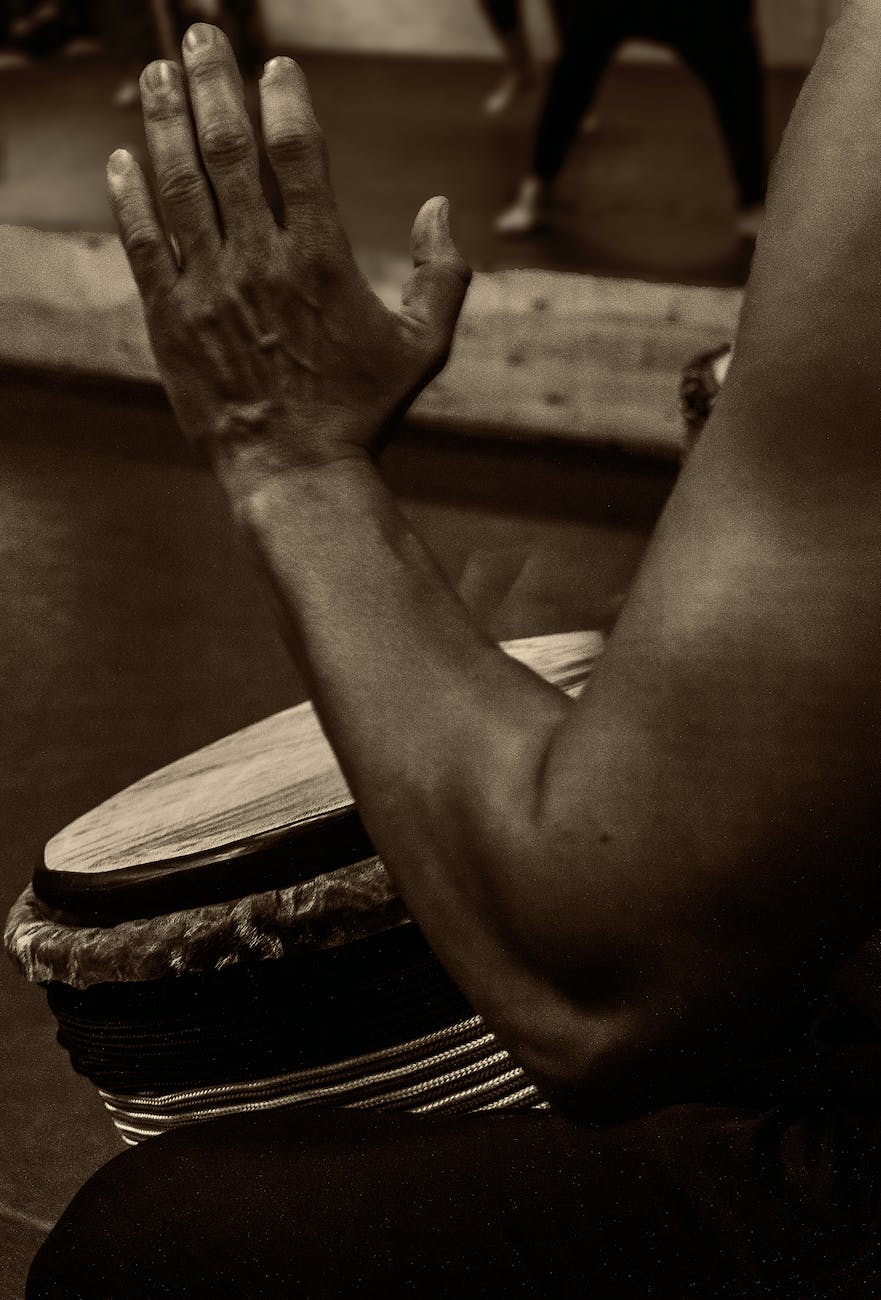
Table of Contents
Table of Contents
What is “African music”?
What jumps to mind when you hear the words “African music”?
Do multilayered, syncopated drum rhythms fill your headspace? Are there non-percussion instruments? How about vocal music? Chances are, given the time, the musical picture painted by our collective minds would have striking similarities.
What about those rhythms! If you’ve given your imagination enough time, your toes are probably tapping by now! We know it when we hear it, for sure! And, of course, there is the rich tradition of call-and-response choral melodies that are both joyous and haunting–and are sometimes both at once! Don’t forget that dance most often accompanies African music in everyday experiences, ceremonies, and celebrations of all types.
However, is what we know based on our understanding of continental African musical idioms, or do we know its gorgeous and varied tapestries because there have been generations of diasporic Africans moving all over the Earth sharing these unique sounds for centuries? Would there be any way to know with certainty?
What did pre-colonial African music sound like?
Several months ago, I asked myself the question, “What was music like in Africa before the arrival of European and Asian peoples?” I was led to a variety of resources that essentially told me that the answer is, “We will probably never know.” There are many reasons for this.
First of all, the African continent is enormous. The second largest continent on Earth, in fact. More remarkably is that it is home to more than 3,000 ethnic groups that speak roughly 2,100 distinct languages and practice all of the world’s major religions alongside their own indigenous ones. These facts alone make discovery of a homogeneous African musical style, either real or imagined, an almost impossible feat. Were/are there commonalities? Of course. Many of these, however, may be due to either the forced migration of different African peoples from ancestral homelands due to conditions created by settler colonialism, and/or the instruments and musical tastes that traveled to Africa with those settlers and influenced the indigenous music.
Consequences of European colonialism and imperialism on musical development
Africa is often seen as having many disconnected groups of people that lived largely in isolation. This may be due to the fact that many far-flung remains of the earliest humans have been discovered there. Africa was, in fact, home to many kingdoms that united groups of tribes and provided political, financial, religious and educational bonds that existed centuries before modern-day scholarship, nationalism, democracy and socialism. One such king, Mansa Musa I of Mali, is widely considered to be the richest person in the history of the world, with a fortune that’s believed to exceed $400 billion in today’s dollars. Africa is also home to the world’s oldest library as colonialism and imperialism overspread the continent beginning in the 14th Century BCE, however, different groups of Africans were forced into imagined “nations” with arbitrary borders. These divisions served the financial interests of the colonizing nations and their representatives, the crippling poverty felt by those left behind . It’s likely that little if any of the original disparate musics created by these groups survives in its unadulterated form to the present. but the destruction of families and the lost creativity caused by the enslavement of possibly 12 million people (more than the populations of New York City and Los Angeles combined)–it’s impossible to know how much art was lost.
Legacy of the African diaspora
We, however, have the African diaspora to thank for slave songs, spirituals, work songs, ragtime, the blues, jazz and the many social dances, all of which continue to influence musicmaking up to the present. However, like the music being made in the Americas up to the mid-1400s. When European music arrived in North America, the masterworks of Mozart, Handel, and Beethoven were packed and brought along. In addition, the indigenous musical traditions of far-flung places like Ireland also completed the voyage. Not only that, their evolution was allowed to continue and flourish in North America as succeeding generations left their own marks on what would become known as Early American Music. The music that came from the African shores surely had an equally rich tradition, given that the continent birthed and raised the very first humans, created the first written languages, the first libraries, and the first universities. Some ethnomusicologists believe documented but it was suppressed as those who were brutally ripped away from families and homes by the thousands were put to work building what would become America.
